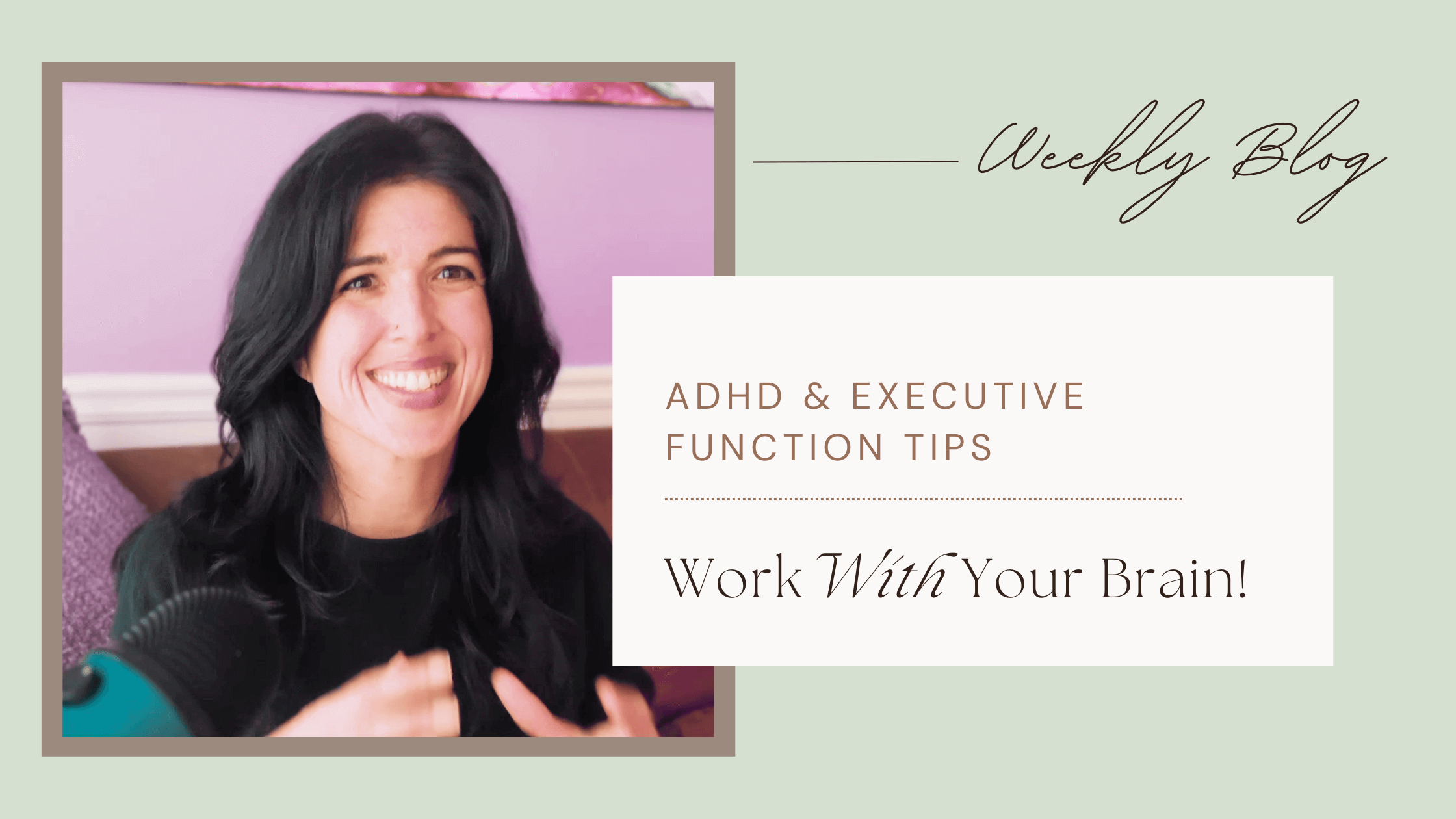
Today, I want to talk about something I see often in my work: the sensory mismatch between parents and their children—and the guilt that can come with it.
When Your Sensory Needs Don’t Match Your Child’s
Kids can be a sensory onslaught. They’re tons of touch, noise, movement, energy—all day, every day. And if you're a person who experiences sensory input as overwhelming or even threatening, that constant flood of sensory input can be rough.
I hear this often, especially from moms. These are people who love their kids deeply, but find themselves touched out, overstimulated, and burned out. The guilt creeps in fast: “What kind of mom can’t stand being around her own kids?”
But here’s the truth: feeling overstimulated isn't a moral failure. It's not a reflection of your love for your children or your worth as a parent. If you're experiencing sensory overload, it's a "misfit" of the sensory input your nervous system can manage and your environment and there are things you can do to manage that!

Guilt Doesn’t Solve Problems—It Shuts Them Down
When guilt is in the driver’s seat, we tend to ignore the problem or push through until we reach the point of total dysregulation. That could look like:
- Shutting down
- Exploding in anger
- Disconnecting from your body or emotions, aka "freezing"
Whatever it looks like for you, once you’re dysregulated, you're in "reaction mode" and it’s pretty challenging to make conscious choices from that place. That’s why we need strategies to notice what’s happening before we hit that tipping point.
Modeling Self-Awareness Helps Your Kids Too
Here’s a reframe that might help: taking care of your sensory needs isn't just for you. You're also modeling self-advocacy and skills that build emotional awareness for your kids—those are things they’ll need for the rest of their lives.
When you say, “My body feels tight and my face feels hot, and that tells me I need a break,” you’re showing them what it looks like to notice the signs their bodies are giving them and listen to them. And that’s powerful.
So What Can You Do?
Let’s talk about real-world strategies you can try when you’re feeling overwhelmed:
1. Take a Sensory Break
Yes, it can be hard with young kids. It might require outside support from your partner, family, babysitter, or friends. But if you’re at your breaking point, a break isn’t a luxury—it’s a necessity.
Create a plan for mini-breaks, even if it’s stepping outside for 2 minutes or doing a few deep breaths in the hallway.
2. Talk About It—Even With Young Kids
Use simple, body-based language:
“All the noise is making my stomach feel jumpy and my face feel hot. I need a little quiet.”
You might not get the response you hope for—your child might even melt down—but this is long-game parenting. The more you model emotional regulation, the more they'll internalize it.
3. Reduce Sensory Input Where You Can
Find ways to dial things down:
- Noise-canceling headphones
- Soft lighting
- Decluttering or hiding visual mess (yes, tossing toys in a bin counts)
- Picking the room with less sensory “clutter”
This isn’t about perfection. It’s about lessening the load, not eliminating it entirely.
4. Get Creative With Touch
If you're feeling "touched out," that doesn’t mean you can’t connect physically with your kids—it just means you may need to get creative. For example, you can offer deep pressure through play.
A game I used to play in OT sessions was the “pizza game”—rolling a yoga ball over a child like they’re dough, then adding pretend “toppings.” It provided calming proprioceptive input and allowed for playful connection without the constant climbing and grabbing that can feel overwhelming.

Understanding Proprioceptive Input: A Regulation Superpower
Proprioceptive input is sensory input to your muscles and joints. It helps your brain know where your body is in space and can help regulate your nervous system.
Things like:
- Stretching
- Jumping
- Pushing against a wall
- Carrying something heavy
- Doing a wall sit or yoga pose
- Getting deep pressure through massage
This kind of input helps whether you’re overstimulated or under-stimulated, and it's my go-to tool for both parents and kids. Try engaging in these activities together—it might help everyone in the house calm down and reset.
You Are Not a Bad Parent
I've said it once, I'll say it again (or 1000 more times): You’re not a bad parent.
A sensory mismatch with your child is just that. It just means the needs of you and your child are different. That’s nothing to feel guilty about—it’s human.
Many neurodivergent parents are raising neurodivergent kids. They’re learning together, adapting together. By taking care of yourself, you’re giving your kids a huge gift: the language, tools, and permission to care for their own needs.
Final Thoughts
If you made it to the end of this post, it means you care deeply. You’re working to understand your experience and supporting your children in the best way you can. That alone says a lot.
So keep showing up. Keep trying. Be kind to yourself. This is hard work—and you’re doing it!
Need more support ?
I can help.



















0 Comments